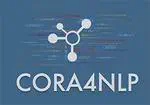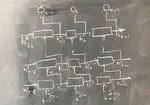Language Understanding
Ex4CDS are explanations (or more precisely justifications) of physicians in the context of clinical decision support. In the course of a larger study, physicians estimated the probability of different clinical outcomes in nephology, namely rejection, graft loss and infections, within the next 90 days. Each estimation had to be justified within a short text - these are our explanations. The explanations were provided in German and have strong similarities to general clinical notes. You can find a description and the data here: https://github.com/DFKI-NLP/Ex4CDS
In this work, we present the first corpus for German Adverse Drug Reaction (ADR) detection in patient-generated content. The data consists of 4,169 binary annotated documents from a German patient forum, where users talk about health issues and get advice from medical doctors. As is common in social media data in this domain, the class labels of the corpus are very imbalanced. This and a high topic imbalance make it a very challenging dataset, since often, the same symptom can have several causes and is not always related to a medication intake. We aim to encourage further multi-lingual efforts in the domain of ADR detection. More info: https://aclanthology.org/2022.lrec-1.388/
This repository contains corpus called MobASA: a novel German-language corpus of tweets annotated with their relevance for public transportation, and with sentiment towards aspects related to barrier-free travel. We identified and labeled topics important for passengers limited in their mobility due to disability, age, or when travelling with young children.
The data can be used for as a training or test corpus for aspect-oriented sentiment analysis. Moreover, the corpus can benefit building inclusive public transportation systems. You can find the corpus here: https://github.com/DFKI-NLP/sim3s-corpus, and the description of the corpus here: https://aclanthology.org/2022.csrnlp-1.5.pdf
This repository contains the DFKI MobIE Corpus (formerly “DAYSTREAM Corpus”), a dataset of 3,232 German-language documents collected between May 2015 - Apr 2019 that have been annotated with fine-grained geo-entities, such as location-street, location-stop and location-route, as well as standard named entity types (organization, date, number, etc). All location-related entities have been linked to either Open Street Map identifiers or database ids of Deutsche Bahn / Rhein-Main-Verkehrsverbund. The corpus has also been annotated with a set of 7 traffic-related n-ary relations and events, such as Accidents, Traffic jams, and Canceled Routes. It consists of Twitter messages, and traffic reports from e.g. radio stations, police and public transport providers. It allows for training and evaluating both named entity recognition algorithms that aim for fine-grained typing of geo-entities, entity linking of these entities, as well as n-ary relation extraction systems. You can find the description of the corpus here: https://www.dfki.de/web/forschung/projekte-publikationen/publikationen-uebersicht/publikation/11741/

